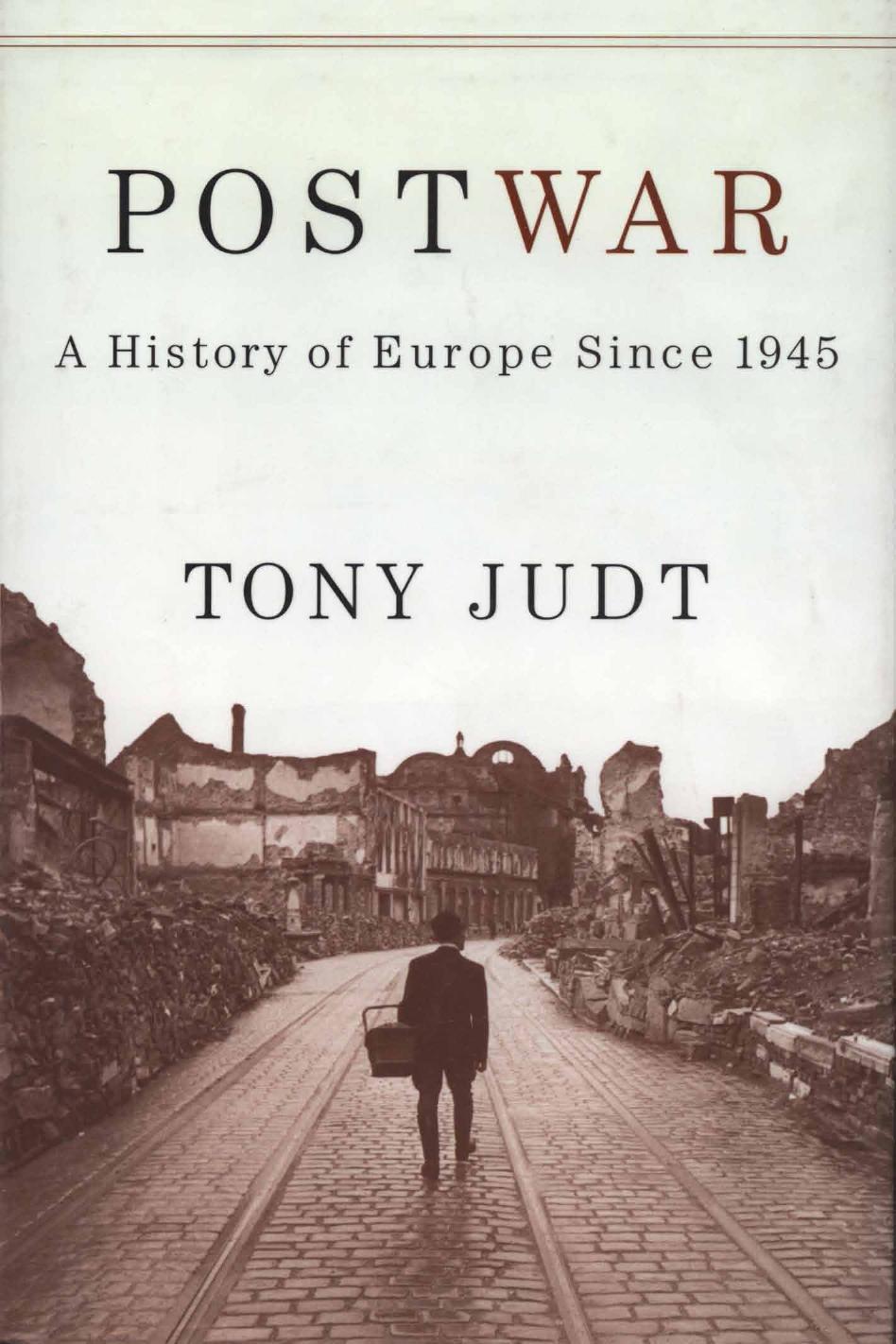Postwar: A History of Europe Since 1945 by Tony Judt

Author:Tony Judt
Language: eng
Format: mobi, epub, pdf
Tags: Nonfiction, History
ISBN: 9780143037750
Publisher: Penguin
Published: 2005-01-02T10:00:00+00:00
The Sixties ended badly everywhere. The closing of the long post-war cycle of growth and prosperity dispelled the rhetoric and the projects of the New Left; the optimistic emphasis on post-industrial alienation and the soulless quality of modern life would soon be displaced by a renewed attention to jobs and wages.189 In the East the message of the Sixties was that you could no longer work within ‘the system’; in the West there appeared no better choice. On both sides of the Iron Curtain illusions were swept aside. Only the truly radical stuck with their determination to remain outside the political consensus—a commitment which in Germany and Italy, as in the US and Latin America, led them into clandestinity, violence and crime.
In the short run, the practical achievements of the Sixties seemed rather thin. Eighteen-year-olds got the vote: first in Britain, then elsewhere. Universities tried, with mixed success, to upgrade their facilities and courses and render themselves more open to student demands. In the course of the next decade access to divorce, abortion and contraception was facilitated almost everywhere, and restrictions upon sexual behavior—whether as depicted or practiced—largely disappeared. In the Statuto dei Lavoratori of May 1970, Italian workers won the right to protection against unfair dismissal. Taken all in all, such changes constitute an underlying cultural transformation of European society; but they were hardly the ‘revolution’ envisaged in the slogans and actions of the generation of 1968.190
Indeed, that revolution had from the start been self-defeating. The same movements that purported to despise and abhor ‘consumer culture’ were from the outset an object of cultural consumption, reflecting a widespread disjunction between rhetoric and practice. Those in Paris or Berlin who aggressively declared their intention to ‘change the world’ were often the people most devoted to parochial and even bodily obsessions—anticipating the solipsistic ‘me’ politics of the decade to follow—and absorbed in the contemplation of their own impact. ‘The Sixties’ were a cult object even before the decade had passed.
But if the Sixties seemed at last to pass un-mourned and with few enduring monuments, this was perhaps because the changes that they did bring about were so all-embracing as to seem natural and, by the early Seventies, wholly normal. At the start of the decade Europe was run by and—as it seemed—for old men. Authority, whether in the bedroom, the home, the streets, educational establishments, workplaces, the media or politics, passed unquestioned. Yet within ten years the old men (Churchill, Adenauer, De Gaulle) were dead. Authority had either been withdrawn from most spheres of social life, or else was acknowledged only in the breach. In some places—France, Italy—the transition had been quite dramatic. Elsewhere—Britain, perhaps—the transition was spread over a period of years and its dimensions could only be fully appreciated in retrospect.191
It was one of the self-delusions of the age that the Sixties were an era of heightened political consciousness. ‘Everyone’ (or at least everyone under twenty-five attending an educational establishment and drawn to radical ideas) was in the streets and mobilized for a cause.
Download
Postwar: A History of Europe Since 1945 by Tony Judt.epub
Postwar: A History of Europe Since 1945 by Tony Judt.pdf
This site does not store any files on its server. We only index and link to content provided by other sites. Please contact the content providers to delete copyright contents if any and email us, we'll remove relevant links or contents immediately.
| Administration | Adult & Continuing Education |
| Business School Guides | College Guides |
| Financial Aid | Graduate School Guides |
| Law School Guides | Medical School Guides |
| Test Preparation | Vocational |
Spare by Prince Harry The Duke of Sussex(5196)
Navigation and Map Reading by K Andrew(5156)
Tuesdays with Morrie by Mitch Albom(4784)
Machine Learning at Scale with H2O by Gregory Keys | David Whiting(4313)
Cracking the GRE Premium Edition with 6 Practice Tests, 2015 (Graduate School Test Preparation) by Princeton Review(4292)
Never by Ken Follett(3954)
Goodbye Paradise(3810)
What It Really Takes to Get Into Ivy League and Other Highly Selective Colleges by Hughes Chuck(3760)
Fairy Tale by Stephen King(3395)
Harry Potter and the Prisoner of Azkaban (Book 3) by J. K. Rowling(3359)
Pledged by Alexandra Robbins(3177)
Kick Ass in College: Highest Rated "How to Study in College" Book | 77 Ninja Study Skills Tips and Career Strategies | Motivational for College Students: A Guerrilla Guide to College Success by Fox Gunnar(3129)
Reminders of Him: A Novel by Colleen Hoover(3116)
A Dictionary of Sociology by Unknown(3085)
Sapiens and Homo Deus by Yuval Noah Harari(3071)
The Social Psychology of Inequality by Unknown(3029)
Graduate Admissions Essays, Fourth Edition: Write Your Way into the Graduate School of Your Choice (Graduate Admissions Essays: Write Your Way Into the) by Asher Donald(2921)
Will by Will Smith(2919)
Zero to Make by David Lang(2783)
